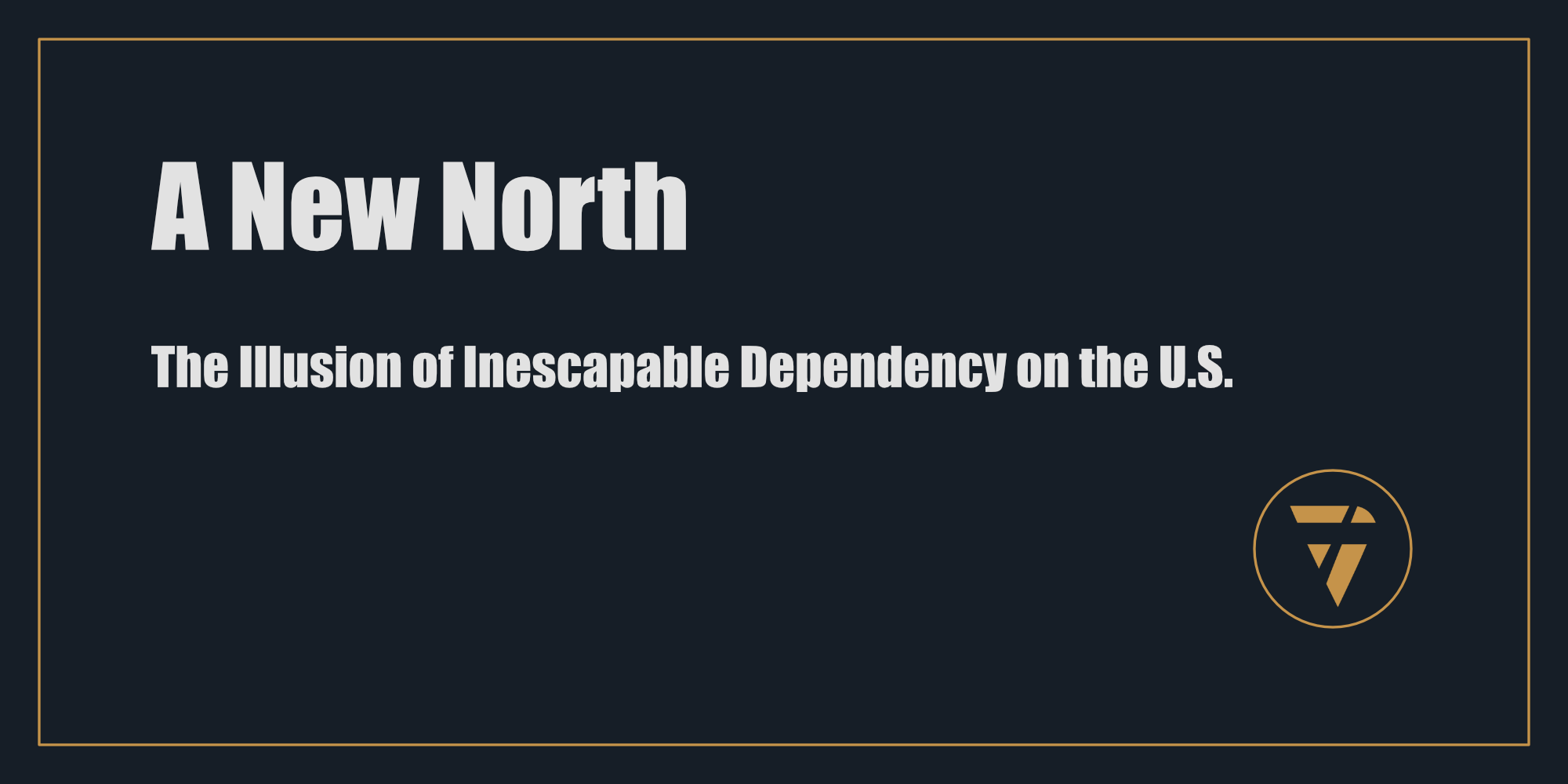A New North

The Illusion of Inescapable Dependency on the U.S.
For generations, Canada has operated under an implicit assumption: economic and political alignment with the United States is a necessity. The U.S. is our largest trading partner, our closest military ally, and a cultural powerhouse that has shaped Canadian identity in countless ways. But what if this alignment is not only unnecessary but is actively limiting Canada’s potential? What if the real path to an independent and prosperous future lies not with Washington, but with Beijing?
The idea of forging a more distinct, sustainable, and co-operative relationship with China—one that is completely different from our U.S. ties—is not only feasible but could be transformative. In fact, if Canada were to establish a truly friendly relationship with China, one that is based on mutual economic growth, social cooperation, and strategic diplomacy, it would unlock a level of opportunity that has never been possible within our historically lopsided relationship with the U.S.
And wouldn’t that be the biggest surprise of all?
The U.S. Relationship: A History of Subservience
The U.S.-Canada relationship has always been tilted in favour of the United States. The North American Free Trade Agreement (NAFTA) and its successor, the Canada-United States-Mexico Agreement (CUSMA), were heralded as economic victories, but they have repeatedly demonstrated their fundamental flaw: they leave Canada vulnerable to U.S. economic and political whims.
When Washington decided to slap tariffs on Canadian steel and aluminum, it did so with impunity. When disputes over softwood lumber arise, the U.S. government pursues aggressive litigation while Canadian officials scramble to protect our industries. Canada is constantly forced into a defensive position, forever negotiating from a place of lesser power.
Our dependency on U.S. trade has shaped everything from domestic industrial policy to energy exports. The U.S. buys roughly 75% of Canada’s exports, and while that figure suggests economic stability, it is, in fact, a risk—a single-point failure that has left Canada without true economic independence.
But China presents an alternative.
A Different Relationship with China
Unlike our historical subservience to the United States, a well-crafted relationship with China would look completely different. Instead of being a client state of a dominant economic neighbour, Canada could engage China as a strategic partner—on our terms.
China’s needs align remarkably well with Canada’s strengths. It requires secure, reliable sources of raw materials, agricultural products, and energy. Canada is a resource-rich country with vast reserves of oil, minerals, and arable land. But where China truly differs from the U.S. is in its long-term strategic approach. While the U.S. demands compliance in exchange for economic participation, China negotiates with a fundamentally different philosophy—one that emphasizes long-term mutual benefit, infrastructure investment, and economic stability.
A well-structured trade relationship with China would allow Canada to:
- Diversify its export market and reduce dependence on the U.S.
- Leverage China’s Belt and Road Initiative (BRI) to secure foreign investment in Canadian infrastructure.
- Open new markets for Canadian goods and services beyond the constraints of U.S. economic policy.
- Engage China diplomatically to balance power dynamics in international trade.
Instead of being at the mercy of American trade restrictions and economic mood swings, Canada could establish an independent trade framework—one that benefits from, but is not dependent on, the United States.
The Social and Cultural Impact of a New Alliance
The most surprising effect of a closer, friendlier relationship with China would not just be economic—it would be social.
For decades, the Western narrative about China has been shaped by fear, misunderstanding, and outright hostility. But when countries engage in genuine partnerships, barriers break down. Just as economic ties between the U.S. and China in the late 20th century led to a cultural and social opening, a deepened Canada-China relationship could create similar opportunities.
Canada has long prided itself on multiculturalism and global engagement. A meaningful shift toward collaboration with China could foster:
- Educational exchanges that bring top-tier Chinese students and researchers into Canadian universities.
- Technological cooperation that positions Canada as a leader in AI, green energy, and biotech.
- A redefined global identity that allows Canada to be a truly independent middle power rather than an economic satellite of the United States.
And perhaps most importantly, it could encourage a softening of China’s own internal policies. Historically, nations that build trust and deep economic ties tend to influence each other in profound ways. Just as Western business investment in China helped spark economic reforms in the 1980s and 1990s, a constructive Canada-China relationship could encourage a more open and globally integrated Chinese society.
A Future Without Limits
The common counterargument to a closer relationship with China is that Canada would be aligning with an authoritarian state that doesn’t share our values. But this argument ignores a fundamental truth: economic power is what drives global influence.
If Canada were to engage China strategically—focusing on sustainable economic cooperation rather than ideological alignment—it would create an independent sphere of influence that neither the U.S. nor China could unilaterally control. Canada could negotiate from a position of strength, rather than as a junior partner in an unbalanced relationship.
Moreover, the U.S. itself continues to do massive business with China despite its public posturing. The idea that Canada should avoid economic engagement while Washington quietly profits from its own China ties is not only hypocritical but strategically foolish.
A world where Canada is not just another subordinate trade partner of the U.S. but an independent, thriving economy with multiple powerful allies? That’s a future worth building.
The Path Forward
To make this vision a reality, Canada must take bold steps:
- Actively pursue high-level trade agreements with China that include safeguards for Canadian interests.
- Develop an independent infrastructure strategy that reduces reliance on U.S.-controlled supply chains.
- Leverage China’s need for stable resources to negotiate favourable trade terms.
- Invest in diplomatic, cultural, and educational ties that create long-term goodwill.
- Adopt a true multipolar approach to foreign policy, positioning Canada as a balancing force between global superpowers.
For too long, Canada has played the role of an obedient neighbour to the United States, waiting for permission to act in its own interest. But a new Canada—one that embraces its role as an independent power, one that builds relationships based on mutual benefit rather than default loyalty—is possible.
And in the end, the greatest irony may be this: that by stepping away from the shadow of the United States, Canada could become the true North, strong and free.
Wouldn’t that be a surprise?
This is what I’m working on. Tell me what you think, I enjoy the conversation! Subscribe and follow the work in real time.
Thanks!
B

Canada’s biggest untapped advantage? A direct, independent relationship with China. On our terms. Less U.S. dependency, more strategic leverage. Imagine a Canada that isn’t just America’s sidekick but a global power in its own right. Now that would be a surprise.
PS -

There is no argument about stability, authoritarianism, or social constructs anymore. There is no one better, no higher ground, no entitlement to right.
This is pragmatic, functional, sustainable relationships built in reality.
Start here. ben@proconsul.ca






